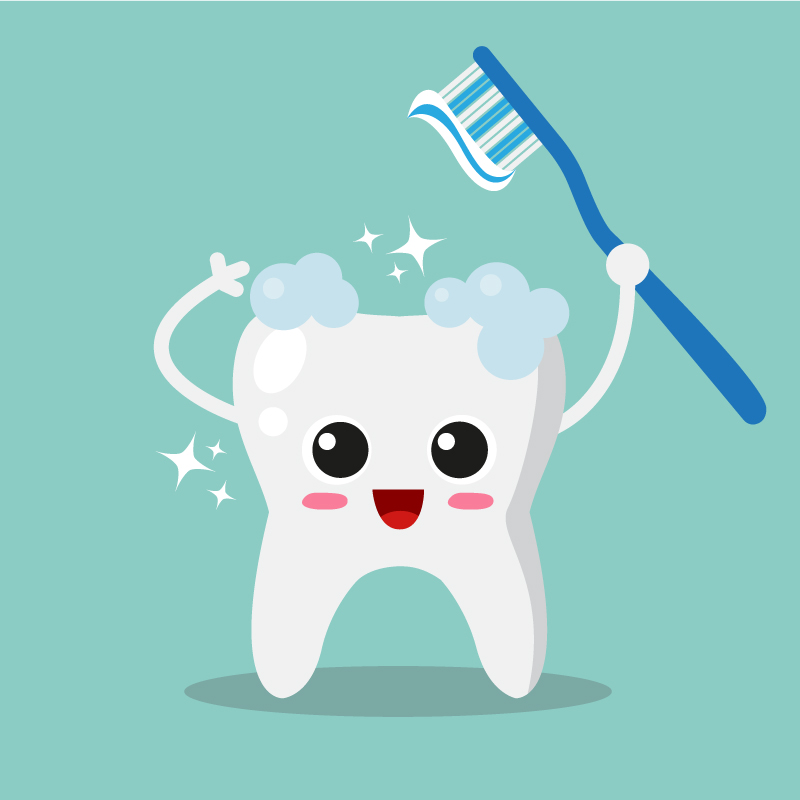As parents, we constantly strive to keep our children safe and healthy. When it comes to oral hygiene, one common concern that arises is whether it’s safe for kids to swallow toothpaste. The answer isn’t as straightforward as a simple “yes” or “no.” In this blog post, we’ll delve into the topic, addressing the potential risks, benefits, and recommended practices to ensure your child’s dental health while minimizing any potential harm.
Understanding the Kid’s Toothpaste Ingredients:
Kids’ Toothpaste contains several ingredients that make it effective in maintaining oral health. These several ingredients are of great importance, but the two primary components of concern are fluoride and mild abrasives. Fluoride helps prevent tooth decay by strengthening tooth enamel, while abrasives aid in removing plaque and stains from the teeth. While these ingredients are generally safe, they should be used appropriately and in moderation. Below are the potential risks if not used properly.
Potential Risks:
Fluoride Overdose: Kids swallowing excessive amounts of fluoride toothpaste can lead to a condition called fluorosis, especially before the age of six, which causes white spots or streaks on teeth. This is a result of much intake of fluoride. This risk is more prevalent during early childhood when tooth development is still ongoing. However, severe fluorosis is rare and can usually be prevented by monitoring the amount of toothpaste used.
Digestive Discomfort: Swallowing large amounts of toothpaste can cause an upset stomach, nausea, or diarrhea due to the presence of certain chemicals. Although these symptoms are generally mild and temporary, it’s best to avoid swallowing toothpaste whenever possible.
Guidelines for Safe Toothpaste Use
Age-Appropriate Amount: For children under three years old, use a smear of toothpaste about the size of a grain of rice. For kids aged three and above, a pea-sized amount is sufficient. Teach your child to spit out the excess toothpaste after brushing, ensuring minimal ingestion.
Supervised Brushing: Until your child has developed the necessary coordination and understanding, supervise their brushing routine to ensure they follow the correct techniques and avoid excessive swallowing of toothpaste.
Flavour Consideration: Choosing toothpaste with appealing flavours can help discourage swallowing. Kids’ toothpaste often comes in child-friendly flavours, making brushing more enjoyable for your little one.
Education and Reinforcement: Teach your child the importance of spitting out toothpaste and rinsing their mouth after brushing. Explain that toothpaste is for cleaning teeth, not for eating.
What to do if your Kid Swallows Toothpaste.
If your kid swallows a bit more than a tiny toothpaste, give them something that contains calcium such as yoghurt or milk to help ease their stomach since calcium binds with fluoride, but if they swallow a tiny bit of toothpaste, you have nothing to worry about. Always draw the attention of your dentist.
Alternatives to Traditional Toothpaste
If you remain concerned about your child swallowing toothpaste, there are alternative options available:
Fluoride-Free Toothpaste: Some fluoride-free toothpaste brands are designed specifically for children, providing a safe alternative for those at higher risk of swallowing.
Training Toothpaste: These specially formulated toothpaste varieties are safe to swallow and can be used for young children who are still learning proper brushing techniques.
Consulting a Dentist: Regular dental check-ups are essential for monitoring your child’s oral health. Your dentist can provide personalized recommendations based on your child’s specific needs and offer further guidance on safe toothpaste use.
Conclusion:
While accidental swallowing of toothpaste is generally not a cause for panic, it’s important to be mindful of the potential risks associated with excessive ingestion. By following the recommended guidelines, supervising brushing routines, and promoting good oral hygiene habits, you can ensure your child maintains a healthy smile while minimizing any potential harm. Remember, a balanced approach with appropriate toothpaste use and regular dental care with authorised Oral care products will go a long way in keeping your child’s oral health in optimal condition.

